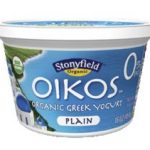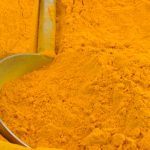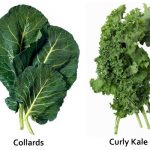Ramp Up Your Health with 11 Foods That Boost the Immune System
The turn of the clocks to Daylight Savings Time indicates the change of seasons and the beginning of the cold and flu season. For singles there is nothing worst than being sick; unless your mother lives nearby or you have great friends, you’re pretty much on your own. Being sick messes you up physically, could impact you financially, and is a total downer for romance.
Friends with young children will of course make the appropriate noises “hey, hope you feel better soon!”, but you won’t see them face to face because they don’t want to carry your bug home to their babies. Can’t really blame them — world over complications from the flu kill hundreds of thousands of people every year. The Centers for Disease Control (CDC) in Atlanta reports numbers on the U.S. population. CDC estimates that from the 1976-1977 season to the 2006-2007 flu season, flu-associated deaths ranged from a low of about 3,000 to a high of about 49,000 people. (source)
How can you boost your immune system — the bodily functions that fight bacteria, viruses and disease — and give yourself the best opportunity to stay healthy through the winter cold and flu season?
11 Foods That Boost the Immune System
Proper amounts of physical activity, sound sleep, and good hygiene will help boost the immune system. Solid nutrition in the form of food and supplements will also help strengthen the immune system. Make sure your diet contains a high percentage of the health building items listed below. Buy organic if possible.
- Garlic – With a high content of phytochemicals and sulphuric compounds like allicin, garlic is considered highly effective as an immune booster and its intake helps to protect you from diseases such as diabetes, heart disease, and cancer. WebMD reports that one clove of garlic contains 5 mg of calcium, 12 mg of potassium, and more than 100 sulfuric compounds — powerful enough to wipe out bacteria and infection (it was used to prevent gangrene in both world wars). Raw garlic, not cooked or dried, is most beneficial for health, since heat and water inactivate sulfur enzymes, which can diminish garlic’s antibiotic effects. In clinical trials, the toxin-fighting staple seems to lower blood pressure and cholesterol and kill parasites in the body.
- Vitamin C Enriched Foods – Since Vitamin C helps with the growth of antibodies to combat infection, foods rich in Vitamin C such as red bell peppers, cabbage, broccoli, all leafy greens, kiwi fruit, citrus fruits like oranges and tangerines, and berries are highly effective to protect against the infections that cause cold and flu. Their consumption helps to neutralize free radicals which cause cellular damage as well, due to the fact that Vitamin C is a powerful antioxidant. These foods are best consumed raw, lightly steamed or stir fried.

- Greek or Regular Yogurt – Often referred to as a miracle food, yogurt contains Lactobacillus acidophilus – a kind of healthy bacteria for your gut, which in turn helps to fight infections resulting from viruses, bacteria, and parasites. Though all yogurt is beneficial for the body, Greek yogurt has almost double the protein of regular yogurt – excellent news for the weight conscious because it keeps you feeling full longer. Greek yogurt also has fewer carbohydrates than regular yogurt (helpful for diabetics). It also has about half the sodium of regular yogurt, good news for hypertensives. Regular yogurt contains about three times the calcium of Greek yogurt, so for those in need of more calcium, opt for low fat, low sugar regular yogurt. Only get yogurt that has “live and active cultures” on the label.
- Red Rooibos and Green Teas – Green tea contains epigallocatechin gallate or EGCG that can fight bacteria and viruses, green tea not only strengthens the immune system but also serves as an anti-cancer agent. Red tea is even more powerful! A growing body of evidence suggests that the health benefits of rooibos may be quite broad, including evidence that the antioxidants in the tea may reduce the risk of heart disease, and may inhibit some parameters of aging. Rooibos is especially rich in the super-antioxidant compound quercetin which helps to reduce the risk of various types of cancers, fights viruses and is significantly anti-inflammatory. Inflammation is indicated as a contributor to all known chronic degenerative diseases. Research conducted in Japan and Germany shows that rooibos also possesses antimutagenic, anticarcinogenic, anti-inflammatory and antiviral activity. Translation – it is powerfully protective for the human body. Additionally, rooibos appears to have anti-allergic properties, helpful to those with hay fever and eczema.
- Ginger Root – According to a study published in the November 2012 issue of the “Journal of Ethnopharmacology” fresh ginger prevented human respiratory syncytial virus, or HRSV, from attaching to and infecting upper respiratory tract cells. Doses of 300 micrograms per mililiter of fresh ginger stimulated the respiratory cells to secrete an anti-viral protein called interferon-beta. Ginger also inhibits mucous production and helps clear up congestion associated with colds. Intake of ginger, especially with a cup of red or green tea, some garlic, and lemon, helps to boost the immune system.

- Turmeric – Is often used to ease joint pain due to osteoarthritis. It’s anti-inflammatory properties help the liver detoxify by enhancing liver function, and also enhances the flow of bile (aka gallstone prevention!). Tumeric boosts blood circulation, and also thins the blood which reduces blood pressure along with risk of heart attack, stroke and blood clots. (CAUTION to those already on a blood-thinning medication like Coumadin). It helps to heal and soothe the digestive tract, and even help prevent ulcers due to the antiseptic properties. If you’re already sick, you’ll find that turmeric can help reduce pain and fever.
- Onions – Onions contain powerful antibacterial and anti-viral compounds. These compounds help to boost your immunity by not only enhancing your immune system, but by also acting as natural medicines themselves to fend off disease. Onions are rich in a number of vitamins and minerals that have widely acknowledged health benefits. These include vitamins C, B-6 and folate, as well as significant amounts of manganese and potassium.
- Coconut Milk – Coconut milk is full of healthy fats and contains lauric acid, antimicrobial lipids and capric acid, which have antibacterial, anti-fungal and antiviral properties.
- Sweet Potato – It promotes a healthy immune system with its antioxidant properties which strengthen bones, blood vessels, and tissues. One cup of sweet potatoes supplies 950 milligrams of potassium, which is about 20 percent of the 4,700 milligrams you should get each day. Potassium keeps your heart beating normally, your blood pressure regulated, and helps your muscles work as they should. A serving of sweet potatoes supplies 1,922 micrograms of vitamin A, a nutrient that keeps your eyes, skin, teeth and bones healthy. This is more than the 700 to 900 micrograms you need on a daily basis. Sweet potatoes contain vitamin C and iron, two nutrients that you need for a strong immune system, and folate, which can prevent certain birth defects.

- Leafy Greens – Kale, spinach, and collard greens are all excellent sources of nutrition. Kale and collards are loaded with antioxidants Vitamin A, Vitamin C, and calcium, Omega-3 fatty acids, and has more iron than beef. Kale is high in both carotenoids and flavonoids, which are associated with anti-cancer health benefits. Collard greens are loaded with disease-fighting beta-carotene and offer health building amounts of vitamin C, calcium, and fiber. The fiber also helps your elimination system excrete harmful bacteria and wastes, preventing them from sticking around to do damage.
- Oysters – Raw oysters on the half shell are distasteful to some because of their texture, but raw oysters contain the most nutrients and are a really good source of protein, vitamins B12 and D, zinc, copper, selenium, manganese and iron. A medium-sized oyster provides more than 100 percent of your daily vitamin B12 needs and 55 percent each of your zinc and selenium needs. They also contain significant amounts of magnesium, phosphorus, riboflavin and omega-3 fatty acids. Zinc helps your body product more white blood cells – the scavengers of the body that seek out bacteria and viruses and destroy them. Selenium is a powerful antioxidant which protects your body from the negative effects of free radicals. Free radicals are products of oxidation and injure blood vessels and other tissues, contributing to accelerated aging and reduced resistance to disease processes.
Great Recipe to Boost Your Immune System
- 2 cups coconut milk
- 1 teaspoon turmeric
- 1/4 teaspoon red or black pepper
- 1? piece of fresh ginger sliced
- raw honey to sweeten, if desired
In a saucepan add the first four ingredients and whisk to combine. Heat over medium heat until it starts to bubble, then turn heat down to low and simmer for 5-6 minutes so the flavors blend. Strain into two cups to remove the ginger. Add honey if desired and stir.
The recipe above serves two people.
Exercise Can Also Boost Your Immune System
Regular, moderate exercise has proven to have a positive effect on the immune system, as it helps to enhance blood flow and improve functioning of organs such as the heart and kidneys, the endocrine system, and the cardiovascular system. Exercise also flushes out toxins from the muscles and organs through the secretion of sweat via the skin – the biggest elimination organ in the human body.
Wash Your Hands Regularly
Hospital regulations require the use of soap and water, with a minimum of 15 seconds of scrubbing to eliminate germs on the hands. Instant sanitizers work only if there is no obvious sign of dirt, feces, grease or mucous on your hands or nails — that stuff requires soap and water to remove. If you use a bathroom that hundreds of other employees also use, or you’re in a job where you’re touching money, elevator buttons, or other people constantly, please be aware of how many bacteria are riding along with you.
Clean your computer keyboard and mouse with an alcohol prep pad every day or two during the cold season, right along with your office telephone mouthpiece as well. Try not to touch your nose or eyes with dirty hands. Use a paper towel to grab the door handle as you leave the bathroom with your clean hands; this protects you from all the gook on the handle left by people who don’t wash their hands thoroughly after using the bathroom.
In closing, a strong immune system is synonymous with health because of its ability to thwart infections, heal tissue damage and prevent disease. Eat nutritiously, get your rest, and take care of your body. It’s the only one you’ll ever get.
Category: Looking Your Best



















